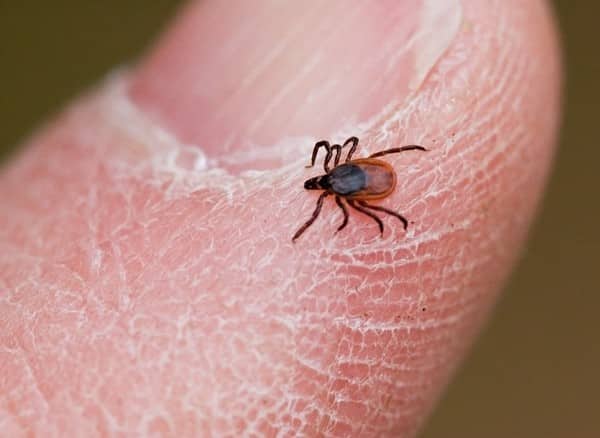 Now that the weather has warmed up, and summer has officially arrived, it’s time to start spending more time outside. While that could mean attending more barbeques or playing a few rounds of golf, spending more time outside also means managing with a whole world of bugs.
Now that the weather has warmed up, and summer has officially arrived, it’s time to start spending more time outside. While that could mean attending more barbeques or playing a few rounds of golf, spending more time outside also means managing with a whole world of bugs.
Bees, fleas, and mosquitoes each offer their own unique challenges to deal with, but few outdoor pests present the type of health risk as ticks. Of course, like most health scares, the dangers ticks present has been blown a little bit out of proportion by the media and people’s fear of contracting something as dreadful sounding as Lyme disease. Even though the majority of ticks don’t carry diseases, any creature that survives by drinking the blood of another is always going to suffer from PR standpoint, and be prone to suspicion.
However, just because you probably won’t contract a serious disease from a tick bite doesn’t mean you shouldn’t stay aware of the potential dangers a bite can cause. Knowing what types of diseases a tick bite can transmit, and the signs of those diseases, can help you understand when you should seek medical treatment.
Tick Bites
An arachnid, and another reason to be leery of any creature with eight legs, ticks typically live in the fur and feathers of animals, but do appreciate the taste of human whenever possible. Ticks feed by latching themselves onto the skin of their meal, and begin to suck until full, at which point they fall off, or until removed.
You should remove a tick immediately upon finding the uninvited dinner guest, as removing the body will help to reduce your risk of contracting a disease. Ticks get a pretty firm grasp on their meals, so the head may still remain attached to your skin after you pull off the body. Make sure you remove the head of the tick from the surface of your skin in order to help prevent an infection from the bite. It can be hard to tell if you’ve removed the head of some smaller ticks from your skin, so it’s important to correctly remove the tick to ensure you don’t leave the head behind.
To successfully remove a tick, use a pair of fine tweezers, and grab the tick as close as possible to its mouth. It’s important not to grab the tick around the belly, as squeezing that area could inject fluid from the tick to inside your body. Once you have a secure grip, begin pulling the body of the tick straight out and away from the surface of your skin until the tick lets go. Try not to twist the body of the tick as you pull out, as that could cause the body to break off from the head. After removing the tick, make sure you wash the bite area with soap and warm water.
Diseases
The majority of diseases a tick bite can transmit carry flu-like symptoms that can include headache and body pains, nausea, fever, and vomiting. These symptoms can begin within 24 hours of a bite, or not surface for several weeks. Common diseases include:
- Rocky Mountain spotted fever
- Tularemia
- Ehrlichiosis
- Babesiosis
- Colorado tick fever
- Lyme disease
When trying to determine the severity of a tick bite, and whether or not you’ve contacted anything, ask yourself these questions.
- Does it appear that you have a skin infection around the area of a bite?
- Have you developed any flu-like symptoms within the last six weeks from being bitten?
- Have you developed a rash or open sore?
- Were you able to successfully remove the tick from your body?
- Did you begin having minor difficulty breathing or start to wheeze after being bitten?
If you answer yes to any of these questions, you should schedule an appointment with your doctor to discuss your symptoms. Even though it’s uncommon to contract a disease from a tick, you still need to take any of these symptoms seriously following a bite to ensure your long-term health.
Timothy Lemke writes about health topics for the blog of Dr. Timothy Dolby, a Tumwater WA dentist at Smiles Family Dental.















